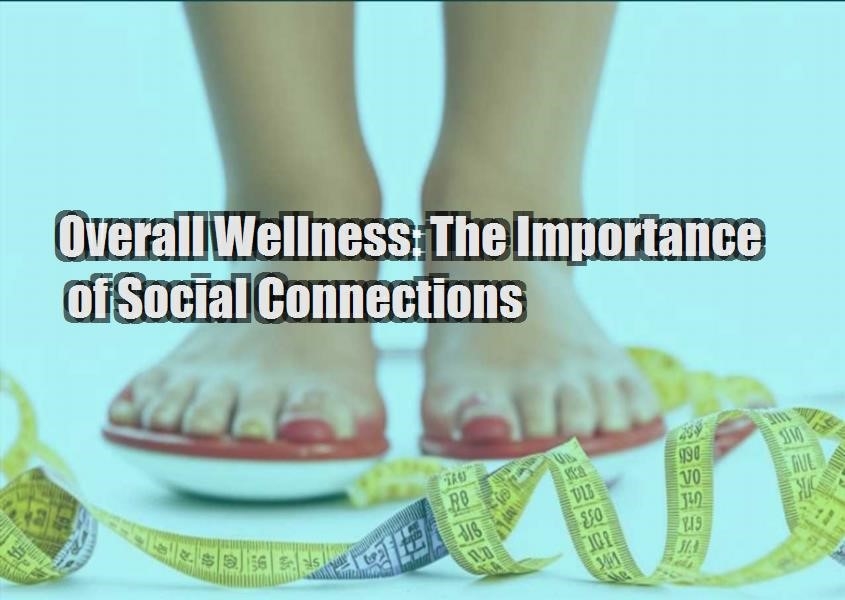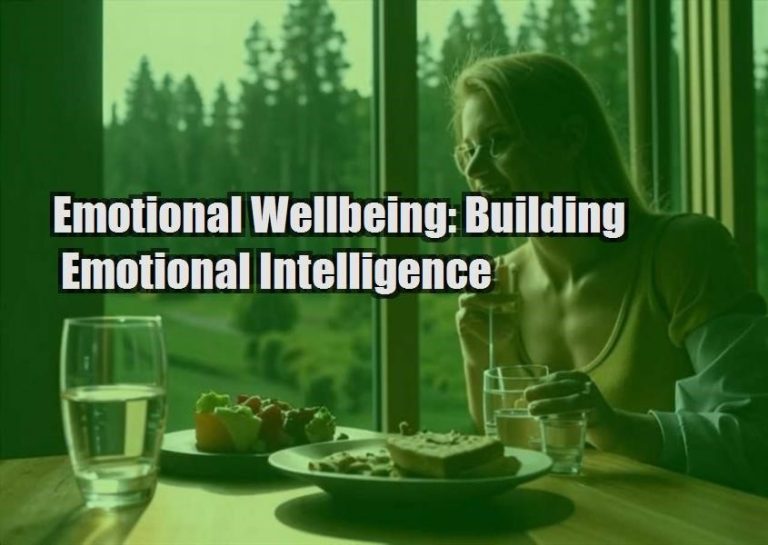n
In the pursuit of overall wellness, many factors come into play, including diet, exercise, and mental health practices. However, one of the most crucial and often overlooked components is social connections. Human beings are inherently social creatures, and our interactions with others significantly impact our mental, emotional, and physical health. In this article, we will delve into the importance of social connections for overall wellness, backed by research and practical insights.
Understanding Social Connections
n
Social connections refer to the relationships and interactions we have with family, friends, colleagues, and the broader community. These connections can be categorized into various types, such as:
n
- **Family relationships** – Bonds with immediate and extended family members.
- **Friendships** – Connections with peers and friends who share common interests.
- **Professional relationships** – Interactions with colleagues, mentors, and professional networks.
- **Community connections** – Engagement with local groups, organizations, and the wider community.
n
Each type of social connection plays a unique role in our lives, contributing to our sense of belonging, support, and overall happiness.
n
The Mental Health Benefits of Social Connections
n
Maintaining strong social connections is essential for mental health. Numerous studies have shown that people with robust social networks are less likely to experience depression, anxiety, and other mental health issues. Here’s how social connections benefit mental health:
n
- **Stress Reduction** – Engaging in social activities and sharing experiences with others can help alleviate stress. Talking to friends and family members about challenges provides emotional support and perspective.
- **Enhanced Self-Esteem** – Positive social interactions reinforce our sense of self-worth and confidence. Being valued by others and having meaningful relationships boosts our self-esteem.
- **Increased Happiness** – Socializing releases oxytocin, a hormone associated with happiness and bonding. Regular social interactions contribute to a more joyful and fulfilling life.
- **Cognitive Benefits** – Engaging in conversations and social activities stimulates the brain, improving cognitive functions and reducing the risk of cognitive decline in later years.
n
Emotional Health and Social Connections
n
Emotional health, which encompasses our ability to manage and express emotions effectively, is deeply intertwined with social connections. Here are some ways in which social relationships enhance emotional well-being:
n
- **Emotional Support** – Having a network of friends and family members to turn to during times of emotional distress is crucial. This support system helps individuals cope with grief, loss, and other emotional challenges.
- **Sense of Belonging** – Being part of social groups provides a sense of belonging and acceptance, which is vital for emotional stability. Feeling connected to others reduces feelings of loneliness and isolation.
- **Empathy and Compassion** – Social interactions teach us empathy and compassion, essential components of emotional intelligence. Understanding and sharing the feelings of others strengthens our emotional connections.
- **Resilience** – Strong social ties enhance resilience, enabling individuals to bounce back from setbacks and adversities. Supportive relationships provide encouragement and motivation during difficult times.
n
Physical Health Benefits of Social Connections
n
Beyond mental and emotional health, social connections also have a significant impact on physical well-being. Here’s how maintaining healthy relationships can lead to better physical health:
n
- **Longevity** – Research has consistently shown that people with strong social networks tend to live longer. Social interactions promote a sense of purpose and reduce the risk of chronic diseases.
- **Improved Immune Function** – Positive social relationships boost the immune system, helping the body fend off infections and illnesses more effectively.
- **Lower Blood Pressure** – Engaging in social activities and having supportive relationships can lower blood pressure, reducing the risk of heart disease and stroke.
- **Healthier Lifestyle Choices** – People who have strong social ties are more likely to engage in healthy behaviors, such as regular exercise and a balanced diet. Social support encourages individuals to make better lifestyle choices.
n
Building and Maintaining Social Connections
n
Given the profound impact of social connections on overall wellness, it is essential to actively build and maintain these relationships. Here are some practical tips for fostering strong social ties:
n
- **Prioritize Relationships** – Make time for family and friends, even amidst a busy schedule. Prioritizing relationships ensures that they remain strong and supportive.
- **Join Social Groups** – Participate in community groups, clubs, or organizations that align with your interests. Joining social groups provides opportunities to meet new people and build connections.
- **Be a Good Listener** – Effective communication involves active listening. Show genuine interest in others’ experiences and emotions, fostering deeper connections.
- **Offer Support** – Be there for your friends and family members during times of need. Offering support strengthens bonds and reinforces mutual trust and respect.
- **Stay Connected** – Use technology to stay in touch with loved ones, especially if distance is a barrier. Regular phone calls, video chats, and social media interactions help maintain relationships.
- **Be Open and Authentic** – Authenticity fosters genuine connections. Be open about your thoughts and feelings, encouraging others to do the same.
n
Conclusion
n
Overall wellness is a multifaceted concept that encompasses mental, emotional, and physical health. Social connections play a pivotal role in achieving and maintaining this holistic well-being. By nurturing relationships with family, friends, colleagues, and the community, we can enhance our quality of life, reduce stress, and promote longevity. In a world where digital interactions often replace face-to-face communication, it is more important than ever to prioritize and cultivate meaningful social connections. Investing in these relationships is not only beneficial for individual health but also contributes to a more connected and supportive society.
n
Remember, the key to overall wellness lies in the balance of various aspects of life, and social connections are a vital piece of this puzzle. Start today by reaching out to a friend, joining a community group, or simply spending quality time with loved ones. Your journey towards improved wellness begins with the connections you make and nurture.







